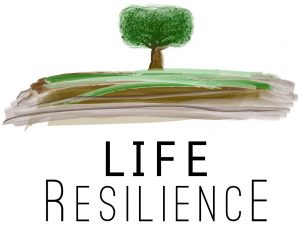 OBJECTIVES
OBJECTIVES
Given the high risk of spreading Xylella fastidiosa (XF) in important agricultural areas of the EU, LIFE RESILIENCE proposes the development of pathogen-resistant and productive plant genotypes, applying practices and innovating in natural vector control methods to demonstrate their effectiveness in prevent the negative effects of XF. Once infected by the pathogen, elimination and containment is difficult to achieve. The current measures address the eradication of infected and surrounding vegetation, which generates large economic and ecological losses. Preliminary research shows that climates with mild winters are especially vulnerable to the proliferation of pathogens and climate change will only exacerbate this effect.
The project will develop 2 main strategies to prevent and mitigate the spread of XF in the production systems of the Mediterranean:
1) Develop and create new varieties of olives that are resistant to pathogens and favorable to intensive irrigation production systems.
2) Implement practical sustainable production demonstrations, which include natural methods of vector control that will help prevent the spread of the bacteria and increase the resistance to outbreak of pests and pathogens.
The objective is to increase system resistance, quality and environmental sustainability.
The concrete expected results include:
Resistance and Sustainability
- Develop and test 10-20 new varieties of olive trees that are resistant to Xylella fastidiosa and, in turn, compatible with intensive production systems. The tests will be carried out in infected and uninfected regions.
- Demonstrate sustainable best practices and apply state-of-the-art technologies that increase the resistance of 150ha in Spain, 50ha in Italy and 50ha in Portugal (olive and almond).
- Increase of biodiversity through the introduction of auxiliary flora and fauna through insects and nest boxes.
- Reduction of GHG emissions of ~ 18,665 t of CO2. Through the reduction of phytosanitary products; decrease in water use and tillage, and the implementation of cover crops that increase carbon fixation.
- Reduction of the insect vector population through natural vector control measures.
- Trees will become healthier as phenolic compounds increase; low intensity water stress will force plants to be more vigorous, thus increasing resistance.
- A manual of best practices will be created that will include measures to control natural vectors for the replication and transfer of knowledge.
Quality
- Maintain / increase quality by 30% (improved organoleptic and commercial quality) through the improvement of soil and plant health and the efficient use of phytosanitary products.
- The reduction of 20% of the water applied in the olive fields will increase the water stress in the field, causing the olive tree to produce a more concentrated fruit. A decrease of 10% of water in the real olive is expected, translating to less kg of olives transported. This translates into diesel and CO2 savings. With a lower H2O level, the purity and quality of the final product will increase.
Socioeconomic benefits
- 13 farms preserved from XF infection, thus safeguarding multiple jobs.
- Reduction of 60% of production costs by saving on high-cost inputs.
- More than 1 million European farmers will be aware of the environmental and economic effects of XF, spreading the best practices that can be applied.










